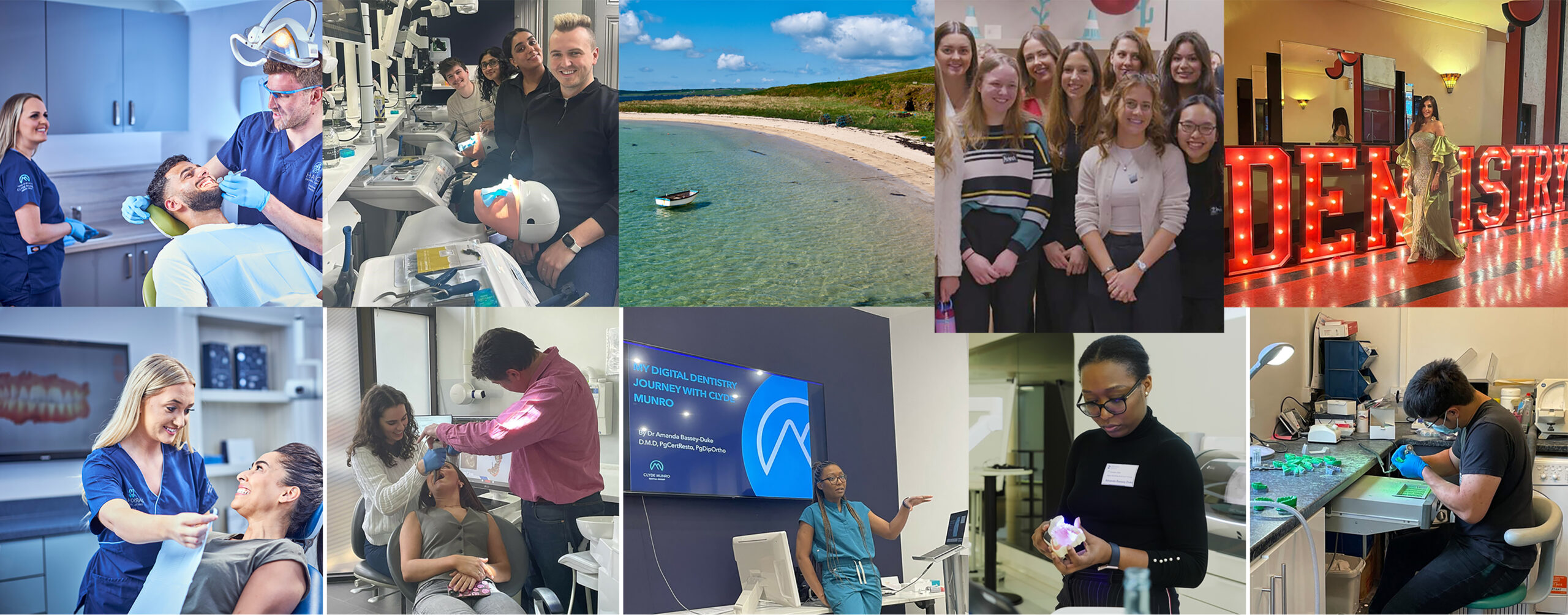 Author: Jo Hood. Head of Clinical Recruitment & Development at Clyde Munro Dental Group
Author: Jo Hood. Head of Clinical Recruitment & Development at Clyde Munro Dental Group
If you have ever looked for a new job, you will likely have come across phrases regarding an organisation’s ‘culture’. But what does that mean? Will it actually affect your experience working there? Is it just words to fill the ‘about us’ section? How can you determine whether the culture being advertised accurately translates into the practice you’re interested in joining?
Some of these are difficult questions without absolute answers, but they are still valid and should be considered with care. To do this, it’s important to define exactly what workplace culture is. The simplest explanation is that it’s the environment created within the organisation, guided by the company values and ethos. It encompasses the core attitudes, beliefs and behaviours of the employer and those that are expected from staff.

All of this is very difficult to assess before you actually join the organisation and experience working there for yourself. However, it is important to get at least a sense of the workplace culture when considering a new job. To achieve this, there are a few options available to you:
Check the website, but look beyond the headlines
Websites are designed to present the very best of a company, of course, but there will be clues as to whether claims can be backed up. For example, are there testimonials from existing or former staff members that reflect the statements being made? Are there details about resources available or people to call for support?
Ensure alignment with company values
On the website will likely be a summary of the company’s mission and values. It’s crucial to make sure that these align with your own beliefs and ethos for the job to be a good match. If they are striving for different goals, or prioritise different aspects to what you would want to, this might impact the appeal of the job for you.
Ask to speak to existing staff
When they have nothing to hide, organisations will have no problem introducing you to clinicians or team members within their practices for you to chat with. You’ll be able to tell fairly quickly if they are genuinely happy in their job role from a conversation in-person or over a video call. If this isn’t possible, then simply asking your professional network for their experiences with the company can be useful instead.
Define the details
The interview stage is a great opportunity to find out more about the organisation. This is their time to sell themselves to you, as well as the other way around. Are they supporting claims about clinical support with examples of how they implement this on a daily basis? Can they describe exactly how they encourage skill development or what resources are available to clinicians offering the type of dentistry you would be providing? Be wary of sweeping statements and generalised answers – if they have tangible infrastructure and systems in place, they will be able to share specifics. Similarly, make a note of anything not said or not answered as this could be just as telling.
Reflect on the interview process
The interview process itself can be just as insightful. How you were treated and spoken to, as well as how others in the practice interacted with each other, may be representative of what you could expect. A lack of transparency or unorganised interviewer could be equally as illustrative of what working there might actually be like.
It’s personal
At the end of the day, where you choose to work could have a lasting impact on your happiness, wellbeing and career advancement, so it’s crucial to choose wisely. At Clyde Munro, we put our people and our patients first. We ensure that all the infrastructure, resources and opportunities are available to our teams to really thrive in their work. This includes a dedicated Clinical Support Team, flexible hours, a range of cutting-edge digital technologies in our practices and complete clinical freedom. We also provide year-long training programmes designed specifically for early career dentists and dental therapists, with a purpose-built Advanced Dentistry & Clinical Skills Centre providing a broad range of post-graduate education in various topics from tooth wear management to endodontics, oral surgery and so much more.
Choosing your next job is personal to you. It’s a big decision and one that should be carefully considered. Workplace culture is difficult to measure, but looking for tangible evidence of working life at a potential organisation is important to ensure you’re properly informed.

To find out more about the career development opportunities available at Clyde Munro, please visit https://careers.clydemunrodental.com/
















